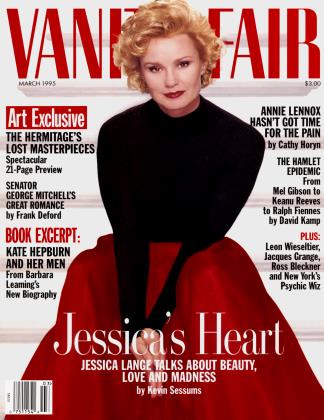Sign In to Your Account
Subscribers have complete access to the archive.
Sign In Not a Subscriber?Join NowLucky Chang
When Chang-rae Lee was five, he debated changing his name to something with an "American" ring to it—Chuck, maybe, or Tom Seaver (the year was 1970). "It was my mother's idea," Lee says, cringing a little. "We'd emigrated from Korea two years earlier, and she wanted me to assimilate." She needn't have worried: her son thrived in the U.S., graduating from Yale and working on Wall Street before delivering this month, at 29, one of the year's most provocative and deeply felt first novels, Native Speaker (Riverhead Books). As with Seaver, Lee's aim feels unerringly true. Native Speaker is a shrewd cross-cultural spy story about a young Korean American, Henry Park. A searing portrait of the immigrant experience, the novel has the onrushing brio of Paul Auster's best work, particularly when Park's cultural allegiances are tested.
Lee's own allegiances remain happily fractured. He teaches creative writing at the University of Oregon in Eugene, where he lives with his wife, Michelle, and is at work on a second novel, about the Korean "comfort women" of World War II. But he returns often to New York, his childhood home, and Korea is never far from his mind. "I feel a peace there that I never quite feel here," Lee says, although he wishes he were more fluent in his native tongue. "The first lesson in any culture is: language is everything."
DWIGHT GARNER
FOR DETAILS, SEE CREDITS PAGE
 View Full Issue
View Full Issue












Subscribers have complete access to the archive.
Sign In Not a Subscriber?Join Now